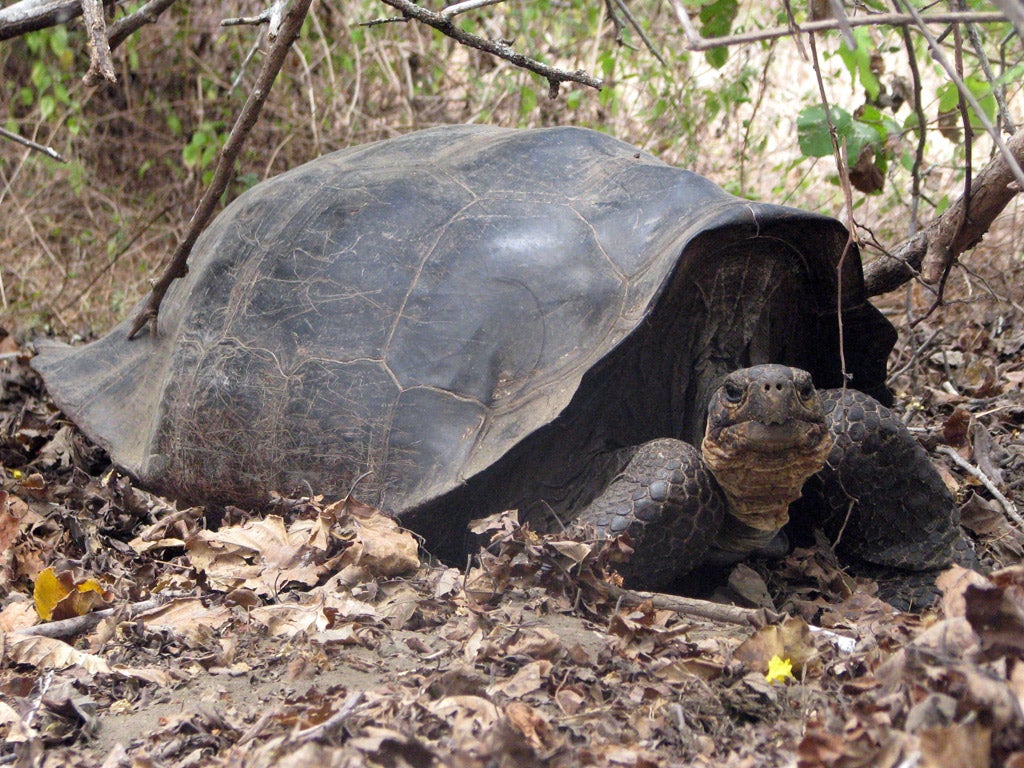'Extinct' tortoise found living in the Galapagos

Your support helps us to tell the story
From reproductive rights to climate change to Big Tech, The Independent is on the ground when the story is developing. Whether it's investigating the financials of Elon Musk's pro-Trump PAC or producing our latest documentary, 'The A Word', which shines a light on the American women fighting for reproductive rights, we know how important it is to parse out the facts from the messaging.
At such a critical moment in US history, we need reporters on the ground. Your donation allows us to keep sending journalists to speak to both sides of the story.
The Independent is trusted by Americans across the entire political spectrum. And unlike many other quality news outlets, we choose not to lock Americans out of our reporting and analysis with paywalls. We believe quality journalism should be available to everyone, paid for by those who can afford it.
Your support makes all the difference.A species of giant tortoise that disappeared after being heavily hunted in the Galapagos more than a century ago may still be living on an island 200 miles away, a study has found.
Scientists believe the tortoise Chelonoidis elephantopus, which was native to Floreana Island, is still breeding among a much bigger population of another species of tortoise onIsabela Island, says a study published in the journal Current Biology.
Conservationists had thought C. elephantopus was driven to extinction soon after Charles Darwin's historic voyage to the Galapagos in 1835.
None can be found on Floreana, but a genetic study of 2,000 tortoises belonging to the closely related species of C. becki on Isabela Island has revealed 30 hybrid tortoises that could only have resulted if one of their parents had been a purebred C. elephantopus.
Join our commenting forum
Join thought-provoking conversations, follow other Independent readers and see their replies
Comments